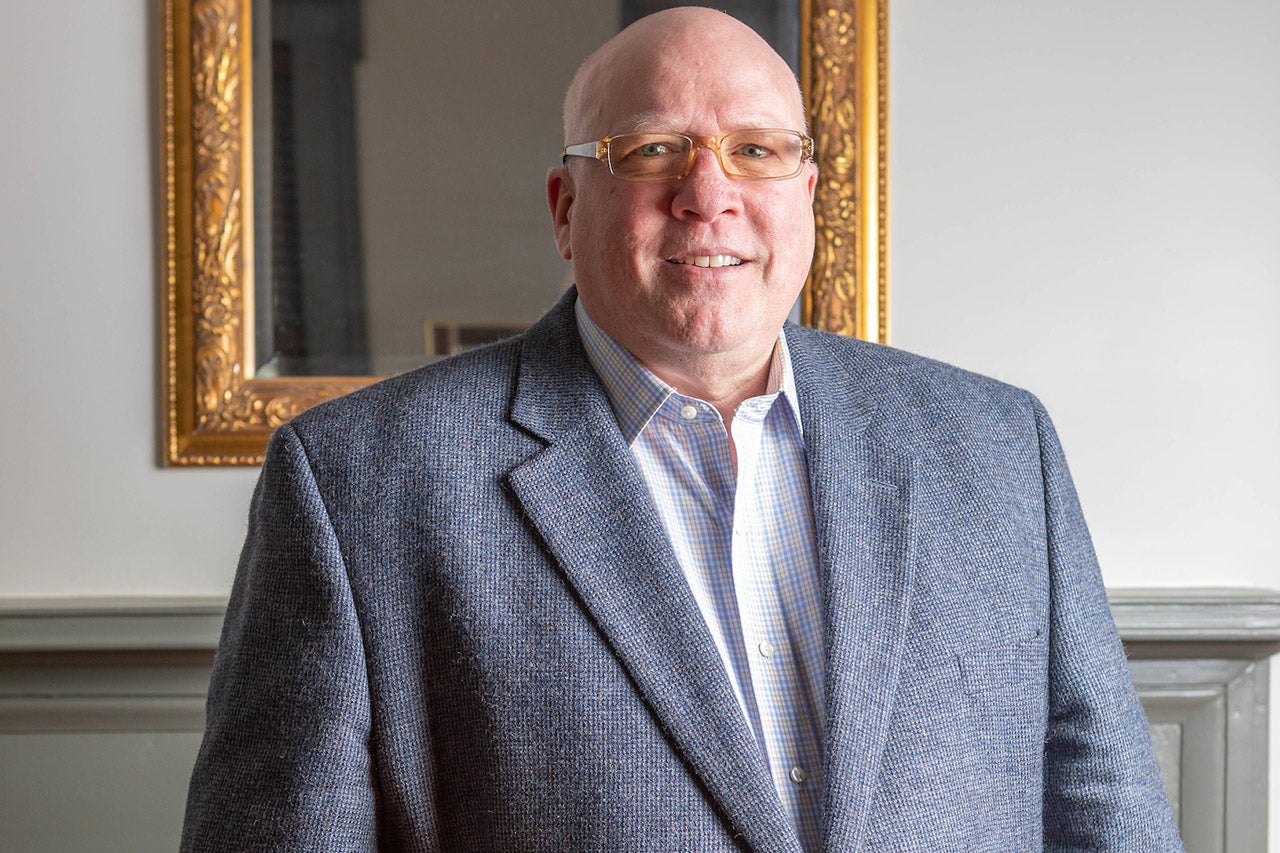It was the thick of the Cold War. James Melville Jr., a young foreign service officer working in the former German Democratic Republic, stood on press risers set up across from the Brandenburg Gate, where West Berlin met East Berlin. A crowd of thousands stretched down the Unter den Linden, American flags waving amid the earnest lilt of President Ronald Reagan’s voice.
As the site officer for Reagan’s speech on June 12, 1987, Melville had a front-row seat to the beginning of the end of the Soviet Union’s grip on Eastern Europe.
“I was standing right in front of him on the press riser when he said, ‘Mr. Gorbachev, tear down this wall,’” he recalls.
It was an informative moment that would shape Melville’s 33-year career as a foreign service officer. He would ultimately serve under six U.S. presidents, live in 10 different countries and work in a variety of posts, including as deputy chief of mission at the U.S. Embassy Berlin, Germany, as well as minister-counselor for management at the U.S. Embassy London, United Kingdom; the U.S. Embassy Moscow, Russia; and at the U.S. Mission to NATO. Most recently, he served as U.S. ambassador to Estonia from 2015 to 2018.
“Living in East Germany, seeing what communism was really like, made me think that’s where I wanted to spend my career – on Eastern European issues,” he says. “It was U.S. policy that really pushed for the changes that brought the expanded zone [between Western Europe and Eastern Bloc countries] where our values really are shared by all those countries that had yearned for democracy and freedom the whole time they were under the Soviet yoke.”
Melville retired in 2018 and joined the CofC faculty last November as the associate dean for international and community outreach in the School of Languages, Cultures, and World Affairs. He’s also the executive director of the Center for the Global Alliance for South Carolina, which is housed at the College.
He first heard about the College after meeting CofC benefactor Harry Huge during his time in Estonia. Huge, an attorney who helped Estonia recover from Soviet occupation in the 1990s, supports study-abroad opportunities for CofC students through the Harry and Reba Huge Scholarship and regularly takes delegations of faculty and administrators to the Baltic nation.
“I was thinking about what I would do after I left the foreign service, and Harry said, ‘Why don’t you come see South Carolina,’” says Melville, noting he had never been to Charleston until he came to see the College in January 2018.
In his role as associate dean, Melville is focused on elevating the School of Languages, Cultures, and World Affairs to a global stage by leveraging his international contacts and sharing his expertise with students. To that end, Melville is launching the Global Ambassadors Program for the 2019–20 academic year. Open to any major,
the program offers mentoring, extracurricular opportunities and international experiences for students interested in careers with international service organizations.
“I’ll be talking about practical diplomacy, how the United States implements its policies and exercises its influence and leverages its power with our allies, friends and adversaries,” says Melville, noting that in the spring semester he will travel with students to Washington, D.C., where they will meet with government officials, legislators
and diplomats.
And when it comes to affecting change, Melville says his advice to the next generation of policymakers is to take the long view. As someone who lived in Leningrad as it returned to St. Petersburg, Russia, after the demise of the Soviet Union and then a decade later celebrated the 50th anniversary of NATO at the White House among a host of world leaders, Melville says he appreciates how the ripple effects of diplomacy can lead to history.
“For young people, students, you’re looking at a 30- to 40-year window of possibilities, and what’s happening today is not what it’s going to be like tomorrow,” he says, adding that American values are widely shared and admired and are often a starting point for collaboration and change. “They, through a choice of public service, can contribute positively toward making the world a better place.”
Now that’s just good policy.
Featured image of James Melville Jr. by Taylor Krauser.




